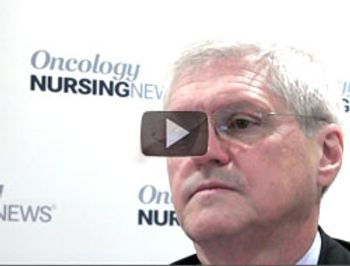
Mark Kris, MD, William and Joy Ruane Chair in Thoracic Oncology, Memorial Sloan Kettering Cancer Center, discusses the benefits of new therapies for lung cancer.Â
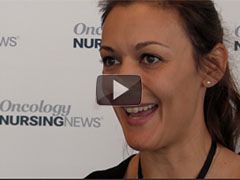

Mark Kris, MD, William and Joy Ruane Chair in Thoracic Oncology, Memorial Sloan Kettering Cancer Center, discusses the benefits of new therapies for lung cancer.Â
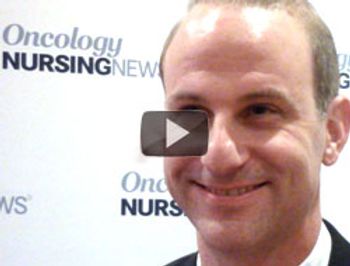
Benjamin Levy, MD, medical director, Thoracic Oncology, Mount Sinai Health System, discusses recent advances in the detection and diagnosis of lung cancer.

Lung cancer remains the leading cause of cancer mortality, killing more Americans than breast, colon, and prostate cancer combined—and Kentucky is the epicenter of lung cancer in the United States.

FDA approval of two immunotherapies to treat non-small cell lung cancer (NSCLC), an ever-expanding understanding of the disease’s molecular differences, and new screening guidelines for high-risk patients to detect lung cancer at an earlier, more treatable stage, are helping patients live longer.
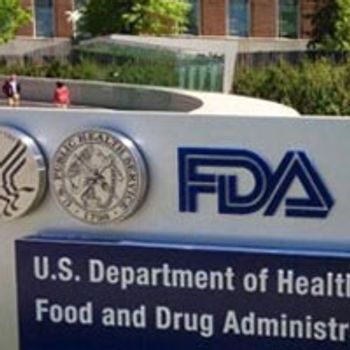
The ALK-inhibitor alectinib (Alecensa) was granted accelerated approval by the FDA for patients with metastatic non-small-cell lung cancer (NSCLC) whose disease progressed on crizotinib (Xalkori).

Superior sulcus tumors make up less than 5% of non–small cell lung cancers (NSCLC) but are associated with a number of debilitating symptoms that are particularly challenging to treat.

Navigation is an essential component of quality care for patients with lung cancer and their family caregivers, and the Bonnie J. Addario Lung Cancer Foundation (ALCF) is working to improve lung cancer outcomes through its Community Hospital Center of Excellence (COE) program.
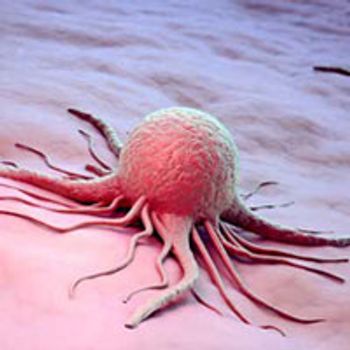
The combination of Portrazza (necitumumab) with gemcitabine and cisplatin has been FDA approved as first-line therapy for patients with locally advanced or metastatic squamous non-small-cell lung cancer (NSCLC). The approval is based on findings from the phase III SQUIRE trial.
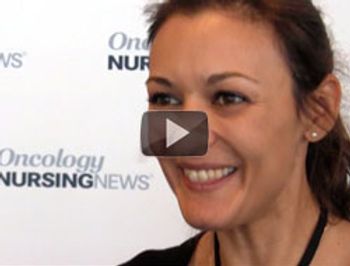
Kathrin Milbury, PhD, assistant professor of Integrative Medicine Research at The University of Texas MD Anderson Cancer Center, discusses caregiver burden in spouses of patients with lung cancer.
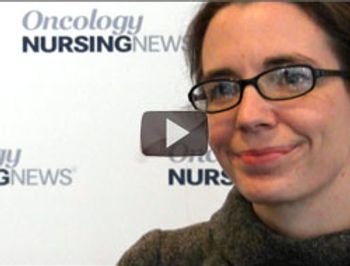
Amelie Harle, MD, PhD, an oncologist at the Christie Hospital in Manchester, United Kingdom, discusses future tests to determine the efficacy of aprepitant (Emend) in reducing cough in patients with lung cancer.

The FDA has granted an accelerated approval for Tagrisso (osimertinib) to treat patients with advanced non–small cell lung cancer (NSCLC) positive the EGFR T790M mutation and whose disease worsened following a prior EGFR TKI.
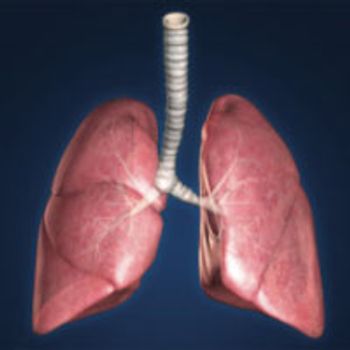
Targeted agents, such as afatinib (Gilotrif) and erlotinib (Tarceva), ushered in a new paradigm for treating patients with non-small cell lung cancer (NSCLC) who have an EGFR mutation.

Amelie Harle, MD, PhD, an oncologist at the Christie Hospital in Manchester, United Kingdom, discusses aprepitant (Emend) to reduce cough in patients with lung cancer.
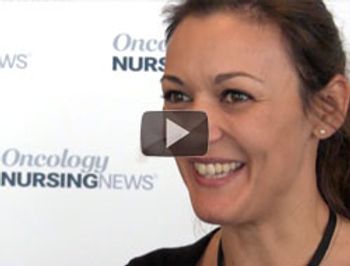
Kathrin Milbury, PhD, assistant professor of Integrative Medicine Research at The University of Texas MD Anderson Cancer Center, discusses spouse distress in couples coping with lung cancer.

Study finds some individuals have genetic variants that allow them to have long-term exposure to a carcinogen without developing lung cancer.

The PD-1 agent nivolumab (Opdivo) was FDA approved October 9 for patients with non-squamous non-small cell lung cancer (NSCLC) whose cancer progressed during or following platinum-based chemotherapy.

The antiemetic NK-1 antagonist aprepitant (Emend) was shown to significantly reduce cough in patients with lung cancer, according to findings of the first antitussive trial in patients with lung cancer using objective quantification of cough.

The PD-1 inhibitor pembrolizumab (Keytruda) was approved by the FDA today for patients with pretreated advanced non–small cell lung cancer (NSCLC) across all histologies whose tumors express PD-L1.

A preliminary analysis of an ongoing study shows that most patients diagnosed with lung cancer before age 40 had an increased chance for a targeted genomic alteration, knowledge of which could lead to more effective, targeted treatment.
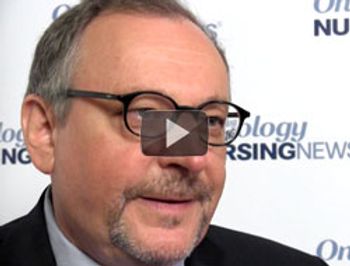
Fred R. Hirsch, MD, PhD, professor of medicine, professor in pathology, University of Colorado, CEO, IASLC, discusses unmet needs in the treatment of lung cancer.

Though immunotherapies can provide significant survival benefit for patients with lung cancer, using the agents in practice is still unchartered territory for many clinicians.

Suresh S. Ramalingam, MD, discusses important considerations for patients, caregivers, nurses and physicians when treatment with an immunotherapy begins.

Certain subgroups of patients with advanced non¬–small cell lung cancer have a new frontline treatment option following the FDA's approval July 13 of gefitinib (Iressa).
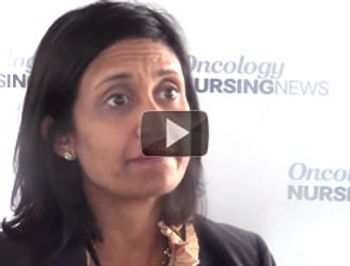
Jyoti Patel, MD, of Northwestern University's Feinberg School of Medicine, talks about the subject of delaying whole brain radiation for brain metastases.

In a phase III trial the immunotherapy nivolumab (Opdivo) improved overall survival and was less toxic than docetaxel in both nonsquamous and squamous non–small cell lung cancer.